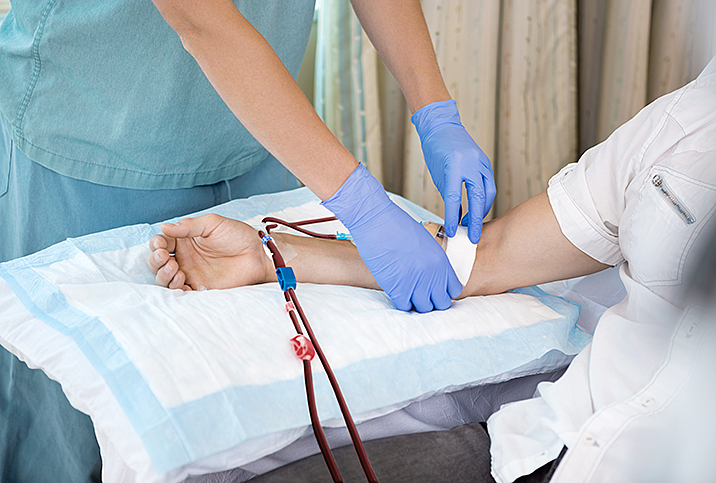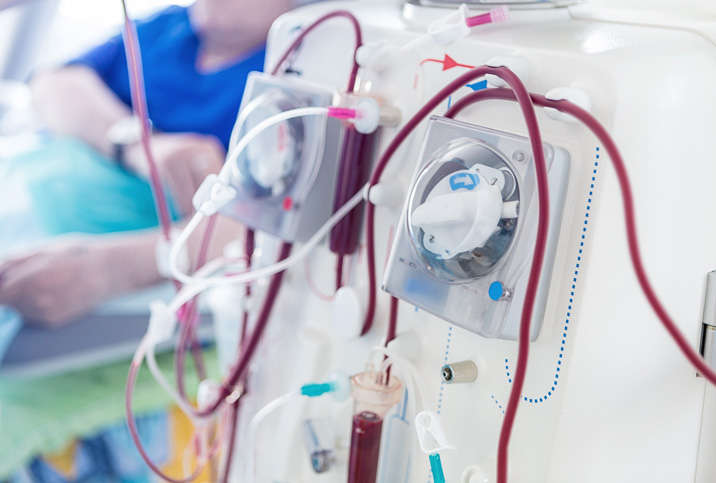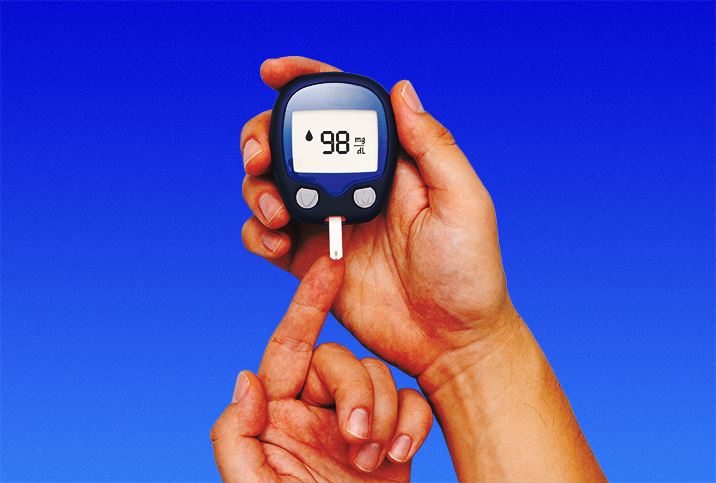Latest Advancements in Kidney Disease Treatment Offer Hope for Patients

There's been positive developments for patients diagnosed with kidney disease.
"When kidney disease is found in its early stages, we can slow or even halt the progression of this disease," said Susan Quaggin, M.D., president of the American Society of Nephrology in Toronto, Canada.
In the recent past, kidney disease was nothing more than a waiting game once you received a diagnosis. Kidney function decline was a given and dialysis was a guarantee. But today, thanks to improvements in treatment technology and medication, life with kidney disease is much more manageable, similar to other chronic conditions.
What to do after a diagnosis
Once you've been diagnosed with kidney disease, the next step is to talk to your doctor about the available treatment options. It's important during this phase to ask questions and make yourself a truly active participant in the process.
This might seem like common sense, but if your diagnosis comes as a surprise, it's natural to need time to process the diagnosis and accept that you will need to manage this disease for the rest of your life. Most doctors plan a follow-up visit to retest your kidney function and to see how you are managing your treatment.
At any time, though, you have the right to reach out to your physician and ask questions to learn more about the disease. Just like any other condition, kidney disease is treated by physicians who are experts in this particular field, so progressing your investigations with a nephrologist—a doctor who specializes in kidney disease and function—is a natural step.
"While we [nephrologists] can offer a second opinion, we can also provide patient education, and this often involves a conversation about how we can manage the potential for kidney function decline and failure," said Holly Kramer, M.D., a professor of public health sciences at Loyola University Chicago and the immediate past president of the National Kidney Foundation.
The latest treatments
"The first misconception of kidney disease is that it will end with dialysis," Quaggin said. "However, we've found that with the use of flozins as an early treatment, patients are far more likely to die of secondary complications, such as fatal cardiac events or complications related to diabetes, long before their kidney disease progresses to kidney failure."
Flozins are oral drugs that work by increasing the levels of glucose lost in the urine, which then leads to calorie loss and consequent weight loss. Many of these drugs are still in phased trials; AstraZeneca's Farxiga (dapagliflozin) was approved for the treatment of chronic kidney disease on April 30, 2021, representing a significant advancement.
The most common contributors to kidney disease are secondary diseases such as diabetes, anemia, heart disease, high blood pressure and high cholesterol. These diseases increase the strain on the kidneys to filter out toxins in the blood.
However, by properly managing these other diseases, you can ease that strain. For example, using a flozin medication can help lower blood glucose levels over time, and a balanced diet can help prevent further kidney deterioration.
When progression happens
"When kidney function lowers to a point where we need to plan for failure, it's important that patients already have a plan in place," Quaggin explained. "The sooner we can address this major decline, the easier it will be for patients to support the remaining kidney function and prevent kidney decline from progressing to failure."
At this point, Quaggin emphasized the importance of finding more permanent treatment plans, such as transplants.
"These lists are long, and patients often have to wait years for a kidney that may never come," Quaggin said. "Sometimes, patients get lucky, and we are able to use a living donor."
In these situations, a patient might find a family member who is an exact match to their blood type. Living donors can donate all or part of their kidney to a patient, which can help improve kidney function to a manageable level.
Thankfully, through the use of the latest tissue-growth techniques, patients may have new opportunities to replace their failing kidneys with their own tissue.
"We've seen amazing innovations in the field of xenotransplantation," Quaggin said. "These transplants alter the DNA of pig kidneys to make an exact match to the patient's DNA."
With these options, patients could potentially receive a compatible kidney and see most of their kidney function restored. This relatively new technology has entered clinical trials, and researchers hope it will be a viable option within the next decade.
Additionally, researchers are utilizing this same gene-growth technology and 3-D printing techniques to build working kidneys by implanting live tissues, sampled from the patient, into an artificial kidney.
A few short years ago, these solutions would have seemed like something from science fiction. Today, researchers are working on analyzing DNA from a skin or urine sample to create organoids—or miniature kidneys—that will grow into fully operational kidneys and be a perfect match to a patient's DNA.
"Right now, these scientists have been able to generate around 500 of these mini-units, but they'll need around a million mini-units to create an operational kidney," Quaggin said.
This may seem like a huge leap to the finish line, but considering how much technology has advanced in the past decade alone, and how much investments and research have increased, what would be considered a miracle a decade ago is now within reach.
The future of kidney disease treatments
Kidney disease is a life-threatening reality for millions of people worldwide. It's been estimated kidney disease affects about 37 million people in the United States, with the sad caveat that as many as 90 percent don't know they have it, according to the National Institute of Diabetes and Digestive and Kidney Diseases. Even when function gets progressively worse, it's estimated as many as two in five people with severe kidney disease remain unaware.
If you haven't considered getting tested, now may be the time. There's no recommended age to start screening, but if you have diabetes, high blood pressure, heart disease or a family history of chronic kidney disease, now's the time to make that call.
As more patients are educated about their disease and become self-advocates, and as we continue to see more advocacy, donations and allocations of research funds, the demand for better treatments continues to increase. Scientists are all over this call to action and are constantly working to develop new preventive treatments and lifesaving interventions that give patients hope for a healthy future.
This future starts with the partnership forged between you and your doctor to ensure you understand the risks of your treatment, so you can create a personalized plan to prevent kidney failure and improve your quality of life.


















